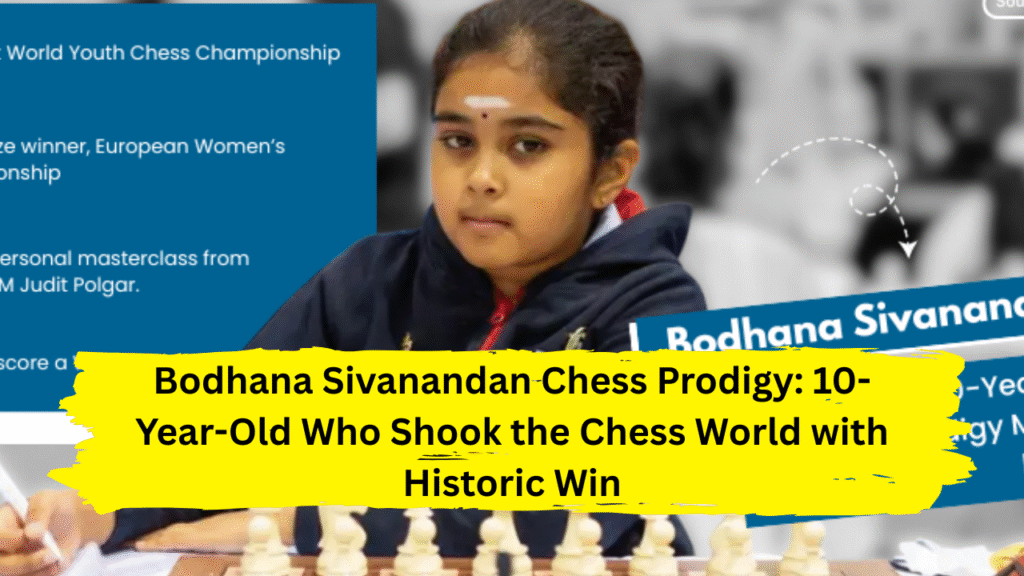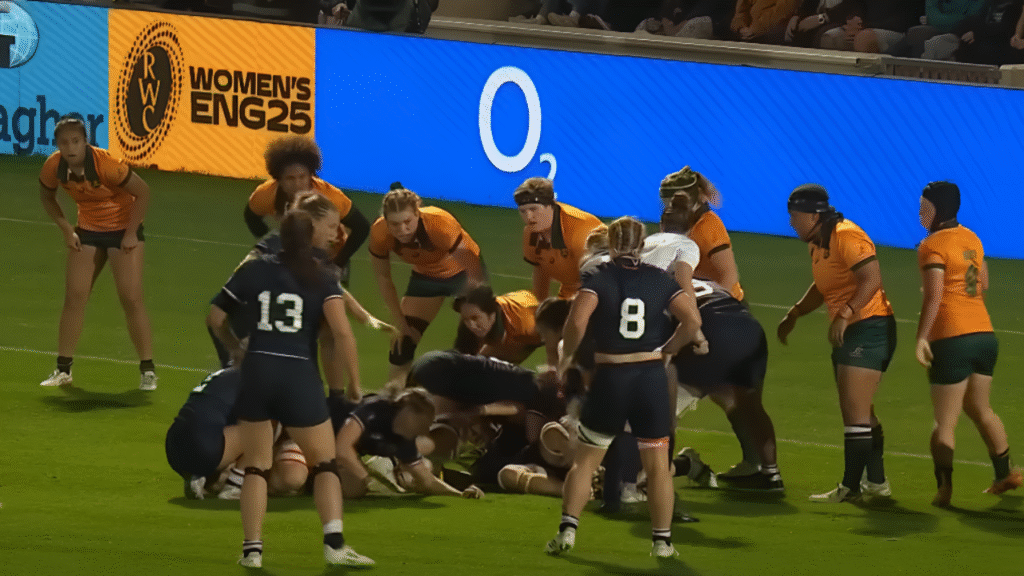Bodhana Sivanandan chess prodigy makes history at just 10, defeating a Grandmaster and redefining the future of the game. Discover her inspiring journey and what lies ahead.
Bodhana Sivanandan chess prodigy — three words that have electrified the chess community this year. At just 10 years old, she achieved something that many seasoned players dream of their entire lives: defeating a Grandmaster. But beyond the headlines and records, Bodhana’s story is about passion, discipline, and the rise of a new era in chess.
A Victory That Stunned the Chess World
In a match that will be remembered for years, Bodhana took down Grandmaster Michael Adams — one of Britain’s most decorated players. This wasn’t just a lucky day; it was a display of strategic mastery and composure well beyond her age.
Her win didn’t just earn applause; it placed her name among the youngest in history to beat a GM, instantly sparking comparisons with global legends.
More Than Just One Win
While the victory itself made headlines, it’s important to note that Bodhana has been consistently delivering remarkable performances. She secured 9th place at the British Chess Championship — competing against seasoned professionals, many decades older and vastly more experienced.
The Making of a Prodigy
Bodhana’s journey in chess started early. From the moment she touched a chessboard, her natural ability to visualize multiple moves ahead was evident. Unlike many young players who dabble in the game, she committed to hours of practice, analysis, and learning from every loss.
Her parents and coaches have emphasized that her talent is matched by her work ethic — a combination that’s rare even among top players.
Why This Win Is a Turning Point for Women’s Chess
The Bodhana Sivanandan chess prodigy phenomenon isn’t just about her age — it’s about representation. Women are still significantly underrepresented in competitive chess, especially at the elite level. Bodhana’s win sends a message to young girls everywhere: the chessboard is for you, too.
Her success can inspire a new wave of female players to aim for the highest titles, changing the demographic of competitive chess in the coming decades.
How She Outsmarted a Grandmaster
Defeating a GM like Michael Adams is no small feat. Grandmasters are known for their ability to spot traps, anticipate threats, and pressure opponents into mistakes. Yet Bodhana played with precision, forcing Adams into difficult positions and capitalizing on opportunities without hesitation.
It was a blend of aggressive play when needed, and quiet, patient positioning when the game demanded restraint — a balance that many players spend decades trying to perfect.
The Role of Early Training and Mentorship
One of the defining factors in Bodhana’s rise has been quality mentorship. Experienced coaches have guided her not just in tactics, but in developing a “big picture” understanding of the game. This holistic approach allows her to adapt to different playing styles and avoid being predictable.
Chess as a Mind Sport for the Next Generation
Bodhana represents a new generation of players who are blending traditional chess study with modern tools — AI analysis, online tournaments, and international exposure from a young age. This hybrid approach is producing smarter, faster-adapting players who can compete with established veterans much earlier.
Global Recognition and Support
Following her win, Bodhana has received international attention from chess fans, journalists, and even fellow professionals. Social media platforms buzzed with praise, and chess communities across the globe discussed her game with admiration.
Challenges Ahead for the Prodigy
While the spotlight is exciting, it also brings pressure. Many young stars have faced burnout when expectations mount. For Bodhana, the key will be maintaining balance — nurturing her love for the game while handling the competitive grind.
What This Means for the Future of British Chess
Britain has a rich chess history, but Bodhana’s victory marks a symbolic shift. She’s not just following in the footsteps of legends like Adams — she’s paving her own path, one that might lead to a new golden age for British chess.
A Role Model in the Making
Young players often look up to champions for inspiration, but relatable role models are rare. Bodhana’s age, humility, and sportsmanship make her an ideal ambassador for the sport.
A Bright Path Forward
If Bodhana continues on this trajectory, we could be witnessing the early years of a future World Champion. While it’s too soon to predict titles, her current skill, mindset, and drive suggest limitless potential.
Final Thoughts
The Bodhana Sivanandan chess prodigy story is not just a tale of an extraordinary win; it’s a glimpse into the future of chess. Her success is proof that age is no barrier when passion meets preparation. Whether she becomes the youngest to achieve further titles or simply continues to inspire millions, her journey has already made history.
FAQs
1. Who is Bodhana Sivanandan?
Bodhana Sivanandan is a 10-year-old chess prodigy from Britain who recently defeated Grandmaster Michael Adams.
2. Why is her win significant?
She is one of the youngest players ever to beat a GM, breaking gender and age stereotypes in competitive chess.
3. What title did she achieve at the British Chess Championship?
Bodhana placed 9th overall in the championship, competing against experienced adult players.
4. How did she prepare for the match?
Her preparation involved a mix of tactical training, strategic study, and guidance from experienced coaches.
5. What’s next for Bodhana?
She’s expected to compete in more international events, aiming for higher titles while continuing her education.
Also Read: Latest Trending News


